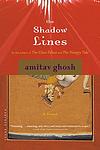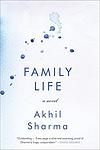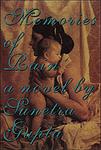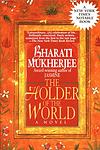The Greatest Portuguese, Indian "Fiction" Books Since 1980
Click to learn how this list is calculated.
This list represents a comprehensive and trusted collection of the greatest books. Developed through a specialized algorithm, it brings together 300 'best of' book lists to form a definitive guide to the world's most acclaimed books. For those interested in how these books are chosen, additional details can be found on the rankings page.
Genres
Countries
Date Range
Reading Statistics
Click the button below to see how many of these books you've read!
Download
If you're interested in downloading this list as a CSV file for use in a spreadsheet application, you can easily do so by clicking the button below. Please note that to ensure a manageable file size and faster download, the CSV will include details for only the first 500 books.
Download-
1. Midnight's Children by Salman Rushdie
The novel tells the story of Saleem Sinai, who was born at the exact moment when India gained its independence. As a result, he shares a mystical connection with other children born at the same time, all of whom possess unique, magical abilities. As Saleem grows up, his life mirrors the political and cultural changes happening in his country, from the partition of India and Pakistan, to the Bangladesh War of Independence. The story is a blend of historical fiction and magical realism, exploring themes of identity, fate, and the power of storytelling.
-
2. The God of Small Things by Arundhati Roy
This novel is a poignant tale of fraternal twins, a boy and a girl, who navigate through their childhood in Kerala, India, amidst a backdrop of political unrest and societal norms. The story, set in 1969, explores the complexities of their family's history and the tragic events that shape their lives. Their mother's transgression of caste and societal norms by having an affair with an untouchable leads to disastrous consequences, revealing the oppressive nature of the caste system and the destructive power of forbidden love. The novel also delves into themes of postcolonial identity, gender roles, and the lingering effects of trauma.
-
3. A Suitable Boy by Vikram Seth
Set in 1950s India, this epic novel follows the story of four families over a period of 18 months, focusing primarily on the young woman Lata and her mother's quest to find her a suitable husband. The narrative explores the political, social, and personal upheavals in a newly independent India, struggling with its own identity amidst the backdrop of a society grappling with religious tensions, land reforms, and the shaping of a modern democratic state. Lata's journey is an exploration of love, ambition, and the weight of familial duty.
-
4. A Fine Balance by Rohinton Mistry
"A Fine Balance" is a poignant narrative set in India during the 1970s, a time of political turmoil and upheaval. The plot revolves around four diverse characters - a widow, a young student, and two tailors - who are brought together by fate. Through their interconnected lives, the book explores themes of caste, poverty, political corruption, and the human spirit's resilience. It offers a profound exploration of the delicate balance that sustains life amidst adversity.
-
5. The Book of Disquiet by Fernando Pessoa
"The Book of Disquiet" is a posthumously published collection of thoughts and musings of a solitary dreamer, who is a Lisbon-based bookkeeper. The book delves into the mind of a man who is discontented with his mundane life and finds solace in dreaming and writing. The narrative is a profound reflection on life, solitude, and the nature of humanity, filled with philosophical insights and poetic language. The protagonist's introspective journey and his struggles with existential despair make it a seminal work in the genre of literary modernism.
-
6. The Year of the Death of Ricardo Reis by José Saramago
The novel is a metaphysical narrative about a doctor named Ricardo Reis who returns to Lisbon, Portugal after learning about the death of his friend. He finds himself in a society on the brink of dictatorship, and as he navigates through his daily life, he encounters his deceased friend's ghost and a hotel maid with whom he begins a love affair. The book explores themes of identity, love, and the nature of reality, set against the backdrop of political turmoil.
-
7. Clear Light of Day by Anita Desai
"Clear Light of Day" is a novel set in Old Delhi, which explores the dynamics of the Das family. The story shifts back and forth in time, reflecting on the lives of siblings Bim, Raja, Baba, and Tara, and their relationships with each other and their aunts. The narrative delves into themes of memory, time, and decay, as well as the political upheaval of the Partition of India. The novel is a poignant study of family relationships, personal change, and loss.
-
8. Blindness by José Saramago
In this dystopian novel, an unexplained epidemic of "white blindness" sweeps through an unnamed city, causing chaos and panic. The government responds by quarantining the afflicted in an abandoned mental hospital, where conditions quickly deteriorate into violence and squalor. Amid the despair, one woman mysteriously retains her sight and guides a small band of the blind, including her husband, through the harrowing ordeal. The novel explores themes of loss, human nature, and the fragility of civilization.
-
9. Baltasar and Blimunda by José Saramago
"Baltasar and Blimunda" is a historical love story set in 18th century Portugal. The narrative follows a maimed soldier, Baltasar, and a young clairvoyant woman, Blimunda, as they navigate the hardships of life during the Inquisition. Their love story is intertwined with the construction of the Convent of Mafra, a grandiose project initiated by the King. The novel explores themes of love, faith, human resilience, and the struggle against political and religious oppression.
-
10. The White Tiger by Aravind Adiga
"The White Tiger" is a darkly humorous novel set in modern-day India that explores the country's class struggle through the eyes of an ambitious and cunning protagonist. Born in a poor village, he moves to Delhi to work as a chauffeur for a rich family. He eventually breaks free from his life of servitude by committing an act of shocking violence, and uses his newfound freedom to become a successful entrepreneur in Bangalore. The story, told through a series of letters written to the Chinese Premier, is a scathing critique of India's social and economic disparities, and the corruption that permeates all levels of society.
-
11. The River Sutra by Gita Mehta
"The River Sutra" by Gita Mehta is a captivating novel that explores the intertwining lives of various characters along the sacred river Narmada in India. Through vivid storytelling and rich descriptions, the book delves into themes of spirituality, love, and the search for meaning in life. As the characters embark on journeys of self-discovery, the river serves as a powerful metaphor for the flow of life and the interconnectedness of all beings. With its lyrical prose and thought-provoking narrative, "The River Sutra" offers a profound exploration of the human experience and the timeless wisdom of ancient traditions.
-
12. The Great Indian Novel by Shashi Tharoor
This book is a satirical take on Indian politics and history, cleverly intertwined with characters and events from the epic Mahabharata. The narrative presents a parallel between the two, with the characters in the novel mirroring significant figures from India's political scene during the Independence and post-Independence era. The book is a humorous yet thought-provoking critique of Indian society and politics, offering a unique blend of myth, history, and satire.
-
13. The Inheritance of Loss by Kiran Desai
This novel explores themes of love, loss, and the human struggle for identity amidst political unrest. Set in India during the Nepalese movement for an independent state, the narrative follows the lives of a retired judge living in the Himalayas, his granddaughter, and his cook. As the political situation worsens, each character must grapple with their own personal issues, including the judge's regret over his failed marriage and his granddaughter's struggle to find her place in the world. The cook, meanwhile, dreams of a better life for his son in the United States. The narrative weaves together these individual stories to create a poignant tapestry of human resilience in the face of adversity.
-
14. The Shadow Lines by Amitav Ghosh
"The Shadow Lines" is a novel that explores themes of memory, family, and national identity through the eyes of a young boy and his experiences growing up in Calcutta, India. The narrative is framed by two major historical events: the 1964 Dhaka Riots and the 1942 World War II. The protagonist's relationships with his family and his personal experiences are juxtaposed with these events, highlighting the complexities of identity, memory, and the lasting impacts of historical events on individual lives. The novel also delves into the arbitrary nature of national borders and the shadow lines they draw between people and their histories.
-
15. Family Life by Akhil Sharma
Family Life is a poignant, semi-autobiographical novel that follows the experiences of an Indian family that immigrates to America in the late 1970s. Their dream of a better life is shattered when the older son suffers a terrible accident that leaves him brain-damaged. The story is narrated by the younger son, who struggles with the pressures of his parents' expectations, the trauma of his brother's condition, and the cultural dislocation of being an immigrant in America. The novel explores themes of family, love, loss, and the immigrant experience.
-
16. The Gospel According To Jesus Christ by José Saramago
This novel offers a provocative and humanized retelling of the life of Jesus Christ, diverging from traditional biblical narratives. It presents a Jesus who is all too human, grappling with the complexities of life, love, and a sense of destiny. Through a blend of biblical lore and imaginative fiction, the story explores themes of divinity, free will, and morality, challenging readers to reconsider the foundations of faith and the nature of storytelling itself. The narrative delves into Jesus's relationships, his encounters with figures such as God and the Devil, and ultimately portrays a deeply philosophical and introspective version of a figure central to Western civilization.
-
17. Fado Alexandrino by António Lobo Antunes
"Fado Alexandrino" is a complex narrative that follows the lives of four Portuguese men who meet at a dinner in Lisbon to commemorate their return from the colonial war in Mozambique ten years prior. Each man, representing different social classes, recounts his life before, during, and after the war, revealing their personal struggles and the impact of the war on their lives. The novel also reflects the political and social changes in Portugal from the dictatorship era to the revolution and its aftermath.
-
18. The Golden Gate by Vikram Seth
Set in the 1980s, the novel follows the life of a group of friends living in San Francisco. The protagonist, a successful yet lonely executive, is persuaded by his former girlfriend to place a personal ad, leading to a relationship with a musician. The narrative delves into their relationship, their friends' lives, and the various complications they face, including issues of love, friendship, sexuality, and death. The unique aspect of this book is that it is written entirely in verse, specifically in sonnet form.
-
19. The History of the Siege of Lisbon by José Saramago
This narrative revolves around a proofreader named Raimundo Silva, who, while working on a historical text about the Siege of Lisbon, decides to alter history by adding a single word to the text, turning the factual account into a fictional one. This act of rebellion leads him into a relationship with his boss, Maria Sara, and together they explore the consequences of questioning historical facts and narratives. The story also delves into the power of language and storytelling, and the blurred lines between history and fiction.
-
20. Memories of Rain by Sunetra Gupta
The novel explores the crumbling marriage of a Bengali woman and her Greek husband. The narrative alternates between Kolkata, India, and London, England, and spans over a decade, capturing the protagonist's emotional turmoil, her struggle to reconcile her Indian heritage with her Western lifestyle, and her eventual decision to leave her unfaithful husband. The novel is rich in poetic language and imagery, and it delves deep into themes of identity, cultural displacement, and the complexities of love and betrayal.
-
21. Holder of the World: A Novel by Bharati Mukherjee
The novel explores the life of Hannah Easton, a woman born in 17th century Salem, who gets married to a British adventurer and travels to India. In India, she becomes the concubine of a local ruler and takes on the name "The Holder of the World". The story is narrated by a 20th-century woman who discovers Hannah's story through a virtual reality device. The narrative weaves together the historical and the contemporary, the East and the West, and the real and the virtual, to create a rich tapestry of a woman's life and the cultural clashes she experiences.
-
22. The Return Of The Caravels by António Lobo Antunes
In this novel, the ghosts of Portugal's colonial past return to haunt the present, as the caravels from the age of exploration sail back into the Tagus River, bringing with them the historical figures from the 15th and 16th centuries. The narrative weaves together the lives of these returned explorers with those of contemporary Lisbon's denizens, blurring the lines between past and present. Through a series of interconnected stories, the book explores themes of identity, nostalgia, and the complex legacy of colonialism, as characters grapple with the dissolution of the Portuguese empire and the reintegration of its former colonies, reflecting on the impact of history on individual lives and national consciousness.
-
23. Treaty Of The Soul's Passions by António Lobo Antunes
"Treaty of the Soul's Passions" is a profound exploration of human emotions and the complexities of the inner self. Through a series of interconnected stories and reflections, the narrative delves into the depths of love, despair, joy, and suffering, painting a vivid picture of the human condition. The author masterfully weaves a tapestry of characters and experiences, each revealing different facets of the soul's journey through life. With poetic language and rich psychological insight, the book invites readers to confront their own passions and question the nature of existence itself.
-
24. Rich Like Us by Nayantara Sahgal
Set against the backdrop of the Emergency in 1970s India, the novel weaves together the lives of two women from different social strata: an affluent London-born woman who marries an Indian businessman and a senior bureaucrat's daughter who becomes a political activist. As the political climate in India grows increasingly oppressive, their stories intersect, exploring themes of power, corruption, and the struggle for democracy. Through their personal and political journeys, the narrative delves into the complexities of wealth, class, and the impact of colonialism, while critiquing the authoritarian regime that threatens the moral fabric of Indian society.
-
25. Karingana Ua Karingana by José Craveirinha
"Karingana Ua Karingana" is a collection of poetry that delves into the rich cultural heritage and history of Mozambique. Through vivid and evocative imagery, the author explores themes of love, loss, and the struggles faced by the people of his country. Craveirinha's powerful and poignant verses offer a glimpse into the complexities of Mozambican society, while also celebrating its resilience and beauty.
Reading Statistics
Click the button below to see how many of these books you've read!
Download
If you're interested in downloading this list as a CSV file for use in a spreadsheet application, you can easily do so by clicking the button below. Please note that to ensure a manageable file size and faster download, the CSV will include details for only the first 500 books.
Download






















